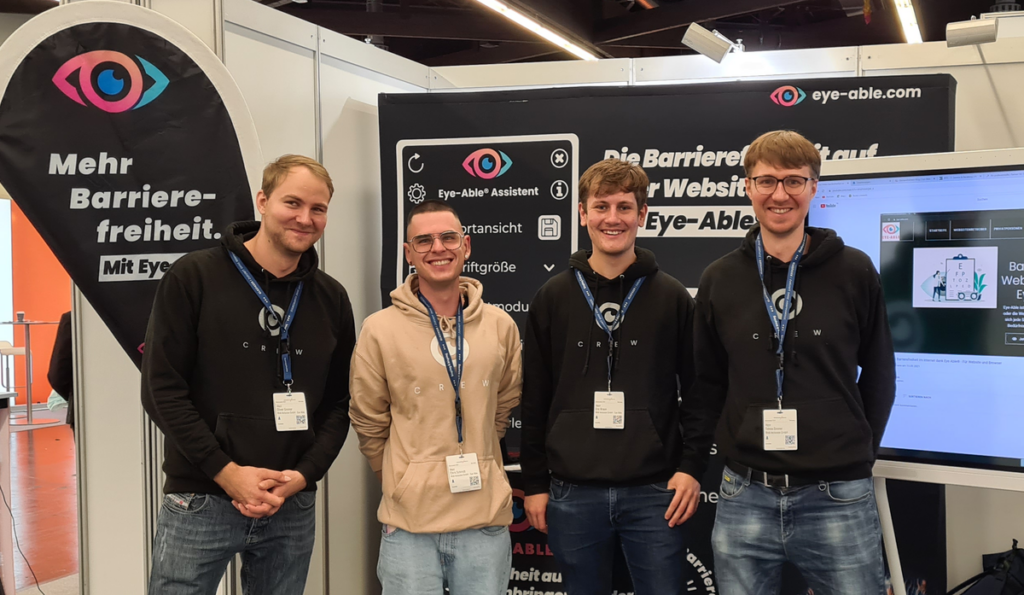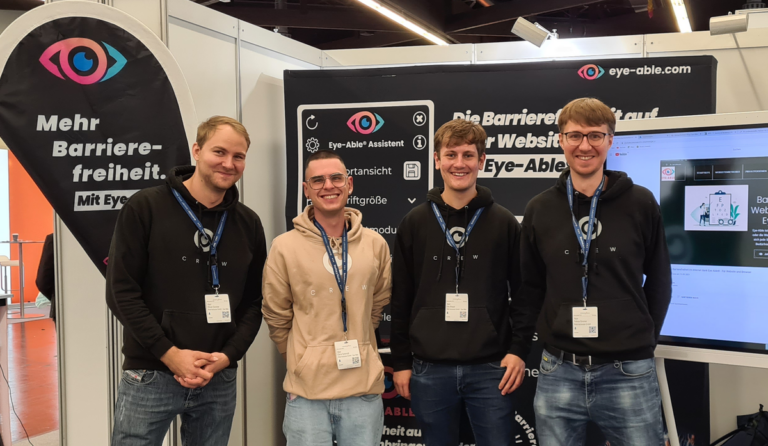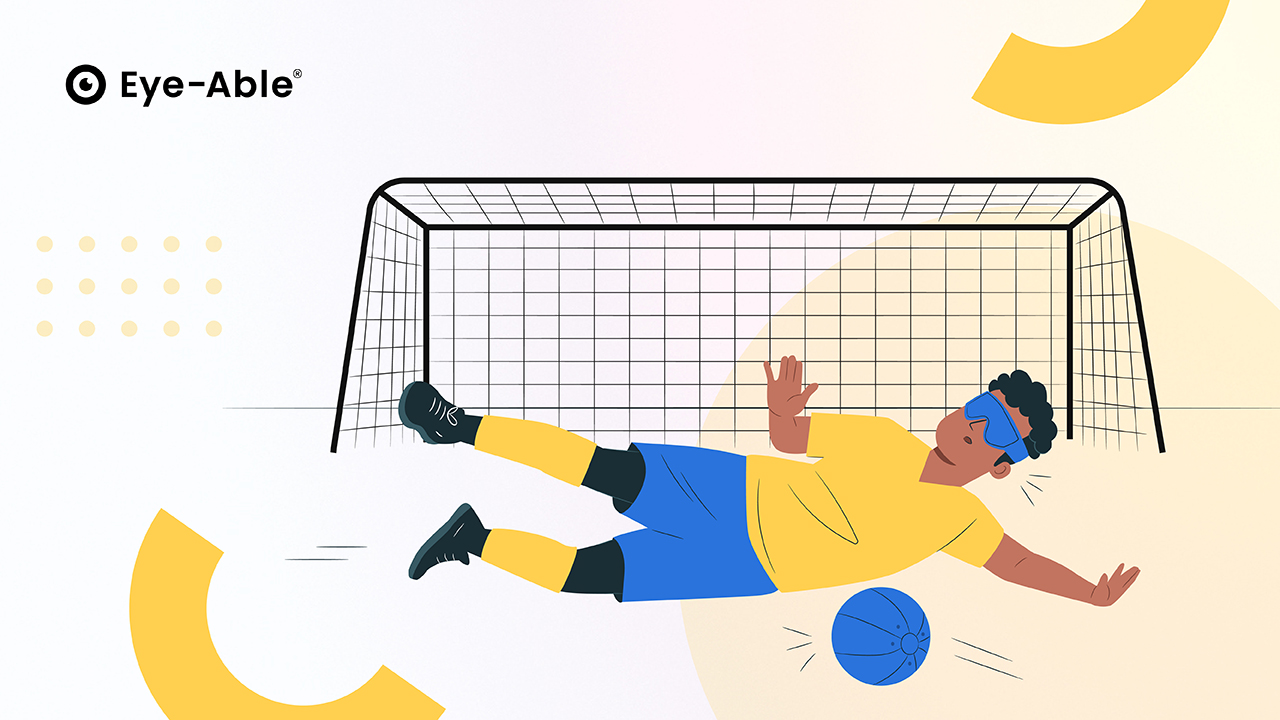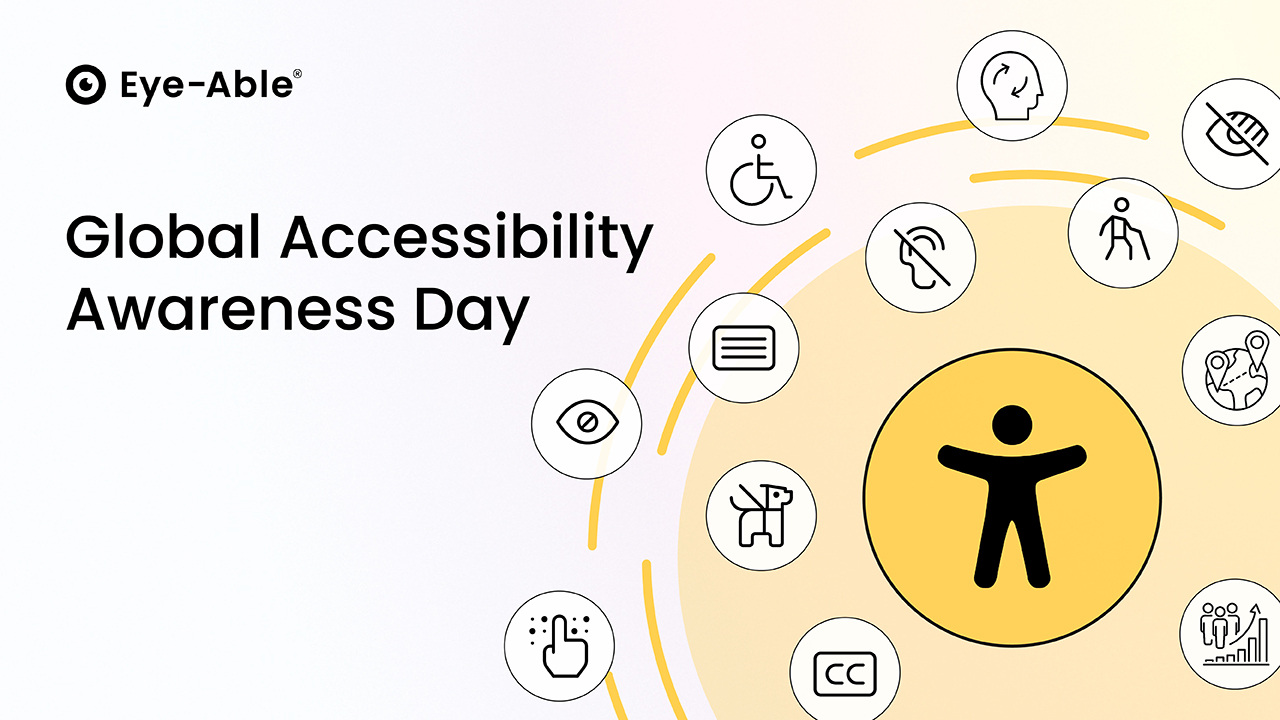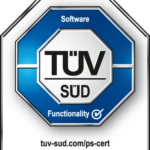Eye-Able is the focus! One of our founders, Chris Schmidt, was interviewed by "Gründerland Bayern". We are appreciated for our current successes, which vom winning the Kultur- und Kreativpiloten Award of the Federal Government, about the victory of the funding programms Start?schuss! of the Initiative Gründerland Bayern up to the victory in the Business Plan Competition Northern Bavaria 2022 vfrom BayStartUp go. We have the interview for you here:
What makes your business idea so important?
Many everyday tasks and things are increasingly taking place digitally: making an appointment for a new ID card at the citizens' office, finding a specialist, paying bills or keeping in touch with loved ones. With our technology, we are making it easier for as many people as possible to access this online world. We are not only targeting people with (visual) disabilities, but also those with (language) impairments.
Accessible means: everyone can easily obtain information on the Internet, for example - the emphasis is on access, it is not purely about an Internet that is suitable for the disabled, but about an Internet that is accessible to everyone. Whether with or without a disability.
What was your motivation for developing the software?
A close friend was forced to drop out of university early due to his severe visual impairment. There are simply still far too many deficits for people with disabilities when it comes to learning and obtaining information, even though accessibility plays such an important role here.
We are equipping so many areas of our lives with technology to make our lives easier. Why isn't this happening in the social sphere yet?
My perception is that many people interested in starting a business are afraid that you can't or can't make enough profit with social projects. Yet the social component can be a real economic driver: we show that you can also drive business growth with a sustainable and social business model.
In our case, digital accessibility generates more sales for our customers - from individual companies to an entire industry such as e-commerce. Simply by including people with disabilities or other limitations in the business model and thus as a target group. Society is getting older and older, and people don't want to miss out on digital participation even in old age. If you add in aspects like these, you get an approximate idea of the number of people for whom barrier-free access to the Internet is or will be important both privately and professionally.
Then there is the fear that technological work on and with people could lead to job losses. For example, if robotics were to be used in retirement homes to support the daily routines of caregivers. Founders are exposed to the risk that they will not be widely accepted in this area.
What can we do to bring about change here?
We can only grow and bring new technologies to the market through reinvestment if we as a company are allowed to act in a socially acceptable, profit-oriented manner.
So if we manage to create greater acceptance in the economy and in society that you can and may earn money with social projects, then more founders would also go into social areas. We need to raise awareness and talk a lot about this.
You also live the topic of inclusion yourselves - what exactly does that look like?
People with disabilities can work very well in companies. Our task as employers is to create a workplace that suits their current life situation. This is also very important to me because I have a disability myself and know how people with disabilities are perceived in companies. And still far too often as a means of fulfilling quotas. This is changing, but unfortunately often far too slowly.
The economic factor that people with disabilities can contribute a real workforce is still far too often underestimated: it is not just the case that we are dealing with very committed and loyal employees here. Both the equipment for their jobs and their wages are often subsidized in Germany. Openness to this enables a certain degree of compensation and economic opportunities, especially in times of a shortage of skilled workers. Both employees and employers benefit enormously from such an employment relationship.
What challenges are you currently facing as a growing social enterprise?
This is no different from any other company. Making potential customers aware of what we offer is one of our biggest challenges. Although there is a legal basis for accessibility in the public sector, the following questions arise: Why is accessibility important? What are the benefits? How can accessibility in the private sector be an economic driver?
We want to develop products that are both relevant to the market to the market, and can also be used by people with disabilities. Initially, it therefore took a lot of energy and time to drive forward our research in the area of accessibility: How do we make our technology accessible to as many people as possible? And at the same time, to build up a company that is not yet earning any money. This is where Professor Michael Müßig from the University of Applied Sciences Würzburg-Schweinfurt (FHWS) really motivated us to go ahead with the start-up. Together with the Berufsförderwerk in Veitshöchheim, we were also able to work out initial problems with the use of websites and functions at the university.
Where do you currently stand with your company and what's next for you?
After a long period of self-financing, we are pleased that we have been able to win well-known customers for our assistance software since the market launch in April 2021 and are now standing on our own two feet. We currently have around 20 employees in the team and want to continue to grow. We are optimistic about the future. This is because we see that there is a great deal of interest in the topic of inclusion and accessibility, particularly in discussions with young people at schools and universities.
We are pleased beyond all measurethat there is so much public interest in ourinterest in our work. The topic of inclusion is for us much more than a pure business model. It is our conviction and passion to bring accessibility to the world. We will continue to work hard in the future to implement our ideas, continue to improve and ultimately create an accessible accessible Internet for everyone!


